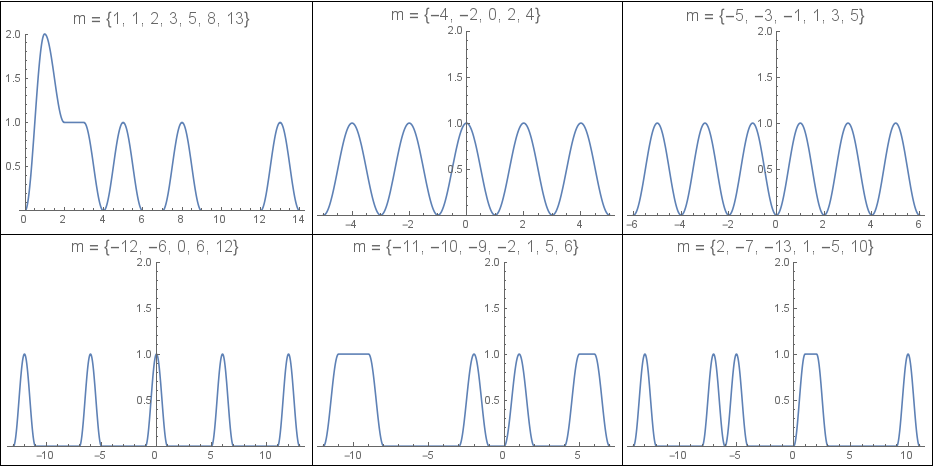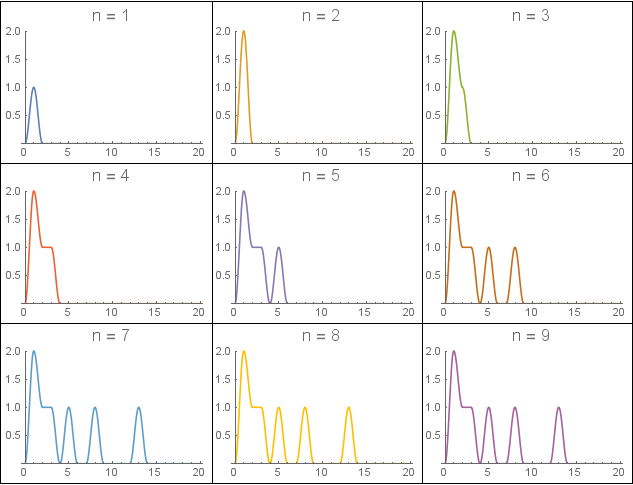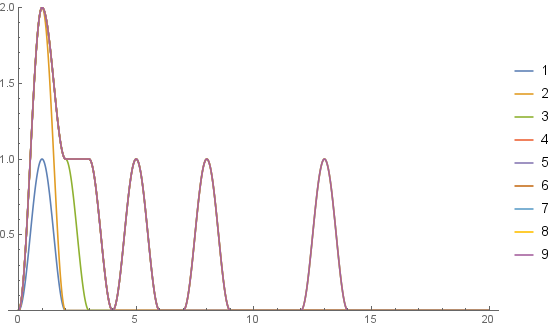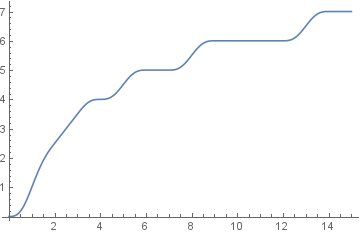Update: A function that takes an arbitrary list of integers as the second argument:
ClearAll[f2]
f2[x_?NumericQ, m : {__Integer}] := Total[Cos[Pi*(Clip[x - #]/2)]^2 & /@ m]
Grid[Partition[Plot[f2[x, #], {x, -1 + Min@#, 1 + Max@#}, PlotRange -> {0, 2},
ImageSize -> 300, PlotLabel -> Style["m = " <> ToString[#], 16]] & /@
{Fibonacci[Range@7], Select[Range[-5, 5], EvenQ],
Select[Range[-5, 5], OddQ], Select[Range[-15, 15], Divisible[#, 6] &],
{-11, -10, -9, -2, 1, 5, 6}, RandomSample[Range[-15, 15], 6]}, 3],
Dividers -> All]
Original answer:
ClearAll[f1]
f1[x_?NumericQ, n_Integer] := Total[Cos[Pi*(Clip[x - #]/2)]^2 & /@ Fibonacci[Range[n]]]
Grid[Partition[Plot[f1[x, #] , {x, 0, 20}, PlotStyle -> ColorData[97][#],
PlotLabel -> Style["n = " <> ToString[#], 16],
PlotRange -> {0, 2}, ImageSize -> 200] & /@ Range[9], 3],
Dividers -> All]
Plot[Evaluate[f1[x, #] & /@ Range[9]], {x, 0, 20},
PlotRange -> {0, 2}, PlotLegends -> Range[9], ImageSize -> 500]
ClearAll[f2]
f2[x_?NumericQ, n_Integer] := NIntegrate[f1[s, n], {s, 0, x}]
ListLinePlot[Table[{x, f2[x, 7]}, {x, 0, 15, 1/100}]]




